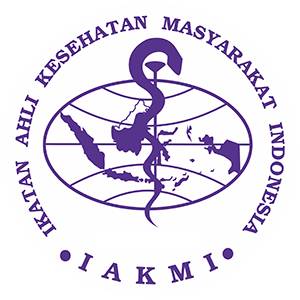EDUKASI GAYA HIDUP SEHAT PADA REMAJA DI MASA COVID-19
DOI:
https://doi.org/10.30787/gemassika.v7i2.765Keywords:
Education, Healthy lifestyle, Adolescent, Covid-19Abstract
Adolescence is a period of human growth and development that occurs after childhood and before adulthood. The widespread spread of Covid-19 in Indonesia has an impact on all fields, especially on psychosocial and short-term and long-term mental health for children and adolescents. Disorders that occur in the form of increased food intake and decreased physical activity resulting in weight gain and obesity. The quality and impact on adolescents is determined by many factors, one of which is lifestyle. Early studies of adolescents have poor knowledge and unhealthy lifestyles such as spending time playing gadgets and sleeping late at night. Efforts that can be made in providing knowledge about healthy lifestyle for adolescents during the Covid-19 period are one of them through leaflets and online education videos. This activity was carried out on adolescents at the Baiturrahim Health Vocational School, Jambi City, as many as 32 people. The expected output target is an increase knowledge between before and after being given education. The method used is health education using leaflets and education videos that can be accessed via YouTube. Adolescent knowledge is assessed from the results of filling out a questionnaire through the google form. Monitoring and evaluation of activities using One Group Pretest and Post-test Design approaches. The result of service has increase knowledge after being given leaflets as well as online education videos to increase awareness of potential risks to their health status.
References
Aba, L., Nirmala, F., Saputri, A. I., & Hasyim, M. S. (2020). Efektivitas Pemberian Edukasi secara Online melalui Media Video dan Leaflet terhadap Tingkat Pengetahuan Pencegahan Covid-19 di Kota Baubau. Jurnal Farmasi Galenika (Galenika Journal of Pharmacy)(e-Journal), 6(2).
Alber, J. M., Paige, S., Stellefson, M., & Bernhardt, J. M. (2016). Social media Self-efficacy of Health Education specialists: training and organizational development implications. Health Promotion Practice, 17(6), 915-921.
Bower, M. (2019). Technologyâ€mediated learning theory. British Journal of Educational Technology, 50(3), 1035-1048.
Childs, C. E., Calder, P. C., & Miles, E. A. (2019). Diet and immune function.
Desmita. (2017). Psikologi perkembangan peserta didik. Bandung: Rosda.
Fantini, E., & Tamba, R. S. (2020). Mediamorfosis Edukasi Informal Online Melalui Platform Digital Sebagai Peluang Bisnis Baru. Majalah Ilmiah Bijak, 17(1), 114-127.
Gasmi, A., Noor, S., Tippairote, T., Dadar, M., Menzel, A., & Bjørklund, G. (2020). Individual risk management strategy and potential therapeutic options for the COVID-19 pandemic. Clinical Immunology, 215, 108409.
Guan, H., Okely, A. D., Aguilar-Farias, N., del Pozo Cruz, B., Draper, C. E., El Hamdouchi, A., ... & Veldman, S. L. (2020). Promoting healthy movement behaviours among children during the COVID-19 pandemic. The Lancet Child & Adolescent Health, 4(6), 416-418.
Hinga, I. A. T., & Adu, A. (2021). EDUKASI KEBIASAAN CUCI TANGAN DENGAN PENERAPAN METODE BERNYANYI SEBAGAI UPAYA PENCEGAHAN PENYAKIT MENULAR PADA MURID SD NEGERI TUADALE KABUPATEN KUPANG. GEMASSIKA: Jurnal Pengabdian Kepada Masyarakat, 5(1), 31-46.
Kementrian Kesehatan RI. (2021). Situasi COVID 19. Retrived from www.kemkes.go.id
Kementrian Kesehatan RI (2020). Pedoman pencegahan dan pengendalian coronavirus disease (COVID-19) Revisi Ke-5. Jakarta Selatan: Kementrian Kesehatan RI.
Khalil11, A. M. S., & Elsayed, Z. E. H. (2020). Children Dietary Habits and Quality of Sleep during COVID-19 Pandemic. International Journal of Nursing, 7(2), 80-86.
Lange, K. W., & Nakamura, Y. (2020). Lifestyle factors in the prevention of COVID-19. Global Health Journal, 4(4), 146-152.
Marques, A., Loureiro, N., Avelar-Rosa, B., Naia, A., & Matos, M. G. D. (2020). Adolescents' healthy lifestyle☆. Jornal de pediatria, 96, 217-224.
Morres, I. D., Galanis, E., Hatzigeorgiadis, A., Androutsos, O., & Theodorakis, Y. (2021). Physical Activity, Sedentariness, Eating Behaviour and Well-Being during a COVID-19 Lockdown Period in Greek Adolescents. Nutrients, 13(5), 1449.
Mustikawati, I. S., Puspitaloka, E., & Abna, I. M. PENINGKATAN PENGETAHUAN DAN SIKAP MENGENAI PERILAKU HIDUP BERSIH DAN SEHAT MELALUI UPAYA PROMOSI KESEHATAN DI SEKOLAH.
Notoatmodjo S. (2014). Promosi Kesehatan dan Ilmu Perilaku Kesehatan. Rineka Cipta: Jakarta.
Pemerintah Provinsi Jambi. (2021). Data dan informasi coronavirus disease 2019 (Covid-19) Provinsi Jambi. Retrived from corona.jambiprov.go.id
Perera, V., Mead, C., Buxner, S., Lopatto, D., Horodyskyj, L., Semken, S., & Anbar, A. D. (2017). Students in fully online programs report more positive attitudes toward science than students in traditional, in-person programs. CBE—Life Sciences Education, 16(4), ar60.
Sampurno, M. B. T., Kusumandyoko, T. C., & Islam, M. A. (2020). Budaya media sosial, edukasi masyarakat, dan pandemi COVID-19. SALAM: Jurnal Sosial Dan Budaya Syar-I, 7(5), 529-542.
Singhal, T. (2020). A review of coronavirus disease-2019 (COVID-19). The indian journal of pediatrics, 87(4), 281-286.
World Health Organization. (2021). Coronavirus disease (COVID-19) Pandemic. Retrived from who.int/emergencies/diseases/novel-coronavirus-2019
World Health Organization. (2020). WHO guidelines on physical activity and sedentary behaviour.
Downloads
Published
How to Cite
Issue
Section
License
Copyright (c) 2023 GEMASSIKA : Jurnal Pengabdian Kepada Masyarakat

This work is licensed under a Creative Commons Attribution-NonCommercial 4.0 International License.












